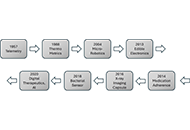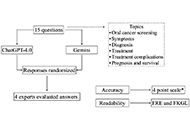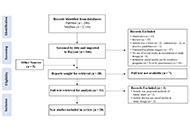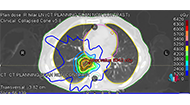Revolutionizing healthcare in Somalia: the role of digital innovations in enhancing access and quality
Somalia’s healthcare system faces significant challenges, including limited infrastructure, a shortage of healthcare professionals (2.5 physicians per 10,000 people), and geographic disparities in
[...] Read more.
Somalia’s healthcare system faces significant challenges, including limited infrastructure, a shortage of healthcare professionals (2.5 physicians per 10,000 people), and geographic disparities in access to care, leading to only 35% of the population having access to basic health services. Despite these, Somalia is embracing digital health technologies to address these challenges and to improve healthcare delivery. Telehealth platforms such as Baano and SomDoctor provide remote consultations and specialized care to overcome geographical barriers. mHealth solutions, including Hello! Caafi, leverages Somalia’s expanding telecommunications network to deliver healthcare information and services. The development of an electronic immunization registry demonstrated the role of digital health records in streamlining health services and improving data accuracy. Despite the potential benefits, challenges persist, including limited and unreliable Internet access (27.6% penetration rate), and the need to ensure data privacy and security. Capacity building and digital literacy enhancement among healthcare providers and populations are crucial. Learning from successful digital health initiatives in African countries that have effectively used digital health technologies for medical supply delivery and for improved healthcare access is essential. The roadmap for Somalia emphasizes government leadership, public-private partnerships, context-specific solutions, and investment in digital infrastructure, capacity building, and data privacy measures. This perspective explores current digital health innovations in Somalia and their potential impact on healthcare access and quality, outlining a roadmap for establishing a sustainable digital health ecosystem.
Mohamed Mustaf Ahmed
Somalia’s healthcare system faces significant challenges, including limited infrastructure, a shortage of healthcare professionals (2.5 physicians per 10,000 people), and geographic disparities in access to care, leading to only 35% of the population having access to basic health services. Despite these, Somalia is embracing digital health technologies to address these challenges and to improve healthcare delivery. Telehealth platforms such as Baano and SomDoctor provide remote consultations and specialized care to overcome geographical barriers. mHealth solutions, including Hello! Caafi, leverages Somalia’s expanding telecommunications network to deliver healthcare information and services. The development of an electronic immunization registry demonstrated the role of digital health records in streamlining health services and improving data accuracy. Despite the potential benefits, challenges persist, including limited and unreliable Internet access (27.6% penetration rate), and the need to ensure data privacy and security. Capacity building and digital literacy enhancement among healthcare providers and populations are crucial. Learning from successful digital health initiatives in African countries that have effectively used digital health technologies for medical supply delivery and for improved healthcare access is essential. The roadmap for Somalia emphasizes government leadership, public-private partnerships, context-specific solutions, and investment in digital infrastructure, capacity building, and data privacy measures. This perspective explores current digital health innovations in Somalia and their potential impact on healthcare access and quality, outlining a roadmap for establishing a sustainable digital health ecosystem.
 Advancing digital health in Yemen: challenges, opportunities, and way forwardOpen AccessPerspectiveThe health sector in Yemen has experienced significant challenges due to prolonged conflict and suboptimal governance, making the development of digital health (DH) crucial. This study highlights th [...] Read more.Omar Abdulkarim Saeed Alhammadi ... Olalekan John OkesanyaPublished: November 25, 2024 Explor Digit Health Technol. 2024;2:369–386
Advancing digital health in Yemen: challenges, opportunities, and way forwardOpen AccessPerspectiveThe health sector in Yemen has experienced significant challenges due to prolonged conflict and suboptimal governance, making the development of digital health (DH) crucial. This study highlights th [...] Read more.Omar Abdulkarim Saeed Alhammadi ... Olalekan John OkesanyaPublished: November 25, 2024 Explor Digit Health Technol. 2024;2:369–386 Revolutionizing healthcare in Somalia: the role of digital innovations in enhancing access and qualityOpen AccessPerspectiveSomalia’s healthcare system faces significant challenges, including limited infrastructure, a shortage of healthcare professionals (2.5 physicians per 10,000 people), and geographic disparities in [...] Read more.Mohamed Mustaf AhmedPublished: November 25, 2024 Explor Digit Health Technol. 2024;2:360–368
Revolutionizing healthcare in Somalia: the role of digital innovations in enhancing access and qualityOpen AccessPerspectiveSomalia’s healthcare system faces significant challenges, including limited infrastructure, a shortage of healthcare professionals (2.5 physicians per 10,000 people), and geographic disparities in [...] Read more.Mohamed Mustaf AhmedPublished: November 25, 2024 Explor Digit Health Technol. 2024;2:360–368 Review on endoscopic capsulesOpen AccessReviewThis research provided an in-depth analysis of endoscopic capsules as an innovative application of the Internet of Things (IoT) in healthcare. The study revealed the importance of these systems in a [...] Read more.Vasile Denis Manolescu ... Emanuele Lindo SeccoPublished: November 25, 2024 Explor Digit Health Technol. 2024;2:346–359
Review on endoscopic capsulesOpen AccessReviewThis research provided an in-depth analysis of endoscopic capsules as an innovative application of the Internet of Things (IoT) in healthcare. The study revealed the importance of these systems in a [...] Read more.Vasile Denis Manolescu ... Emanuele Lindo SeccoPublished: November 25, 2024 Explor Digit Health Technol. 2024;2:346–359 Assessing the accuracy and readability of ChatGPT-4 and Gemini in answering oral cancer queries—an exploratory studyOpen AccessOriginal ArticleAim: This study aims to evaluate the accuracy and readability of responses generated by two large language models (LLMs) (ChatGPT-4 and Gemini) to frequently asked questions by lay persons (the g [...] Read more.Márcio Diniz-Freitas ... Pedro Diz-DiosPublished: November 19, 2024 Explor Digit Health Technol. 2024;2:334–345
Assessing the accuracy and readability of ChatGPT-4 and Gemini in answering oral cancer queries—an exploratory studyOpen AccessOriginal ArticleAim: This study aims to evaluate the accuracy and readability of responses generated by two large language models (LLMs) (ChatGPT-4 and Gemini) to frequently asked questions by lay persons (the g [...] Read more.Márcio Diniz-Freitas ... Pedro Diz-DiosPublished: November 19, 2024 Explor Digit Health Technol. 2024;2:334–345 The use of social media in plastic surgery biomedical research: scoping systematic reviewOpen AccessSystematic ReviewBackground: Social media has become ubiquitous; its uses reach beyond connecting individuals or organizations. Many biomedical researchers have found social media to be a useful tool in recruitin [...] Read more.Amanda Beneat ... Alisha OropalloPublished: November 15, 2024 Explor Digit Health Technol. 2024;2:313–333
The use of social media in plastic surgery biomedical research: scoping systematic reviewOpen AccessSystematic ReviewBackground: Social media has become ubiquitous; its uses reach beyond connecting individuals or organizations. Many biomedical researchers have found social media to be a useful tool in recruitin [...] Read more.Amanda Beneat ... Alisha OropalloPublished: November 15, 2024 Explor Digit Health Technol. 2024;2:313–333 AI bias in lung cancer radiotherapyOpen AccessOriginal ArticleAim: In lung cancer research, AI has been trained to read chest radiographs, which has led to improved health outcomes. However, the use of AI in healthcare settings is not without its own set of [...] Read more.Kai Ding ... Yian QiPublished: November 12, 2024 Explor Digit Health Technol. 2024;2:302–312
AI bias in lung cancer radiotherapyOpen AccessOriginal ArticleAim: In lung cancer research, AI has been trained to read chest radiographs, which has led to improved health outcomes. However, the use of AI in healthcare settings is not without its own set of [...] Read more.Kai Ding ... Yian QiPublished: November 12, 2024 Explor Digit Health Technol. 2024;2:302–312